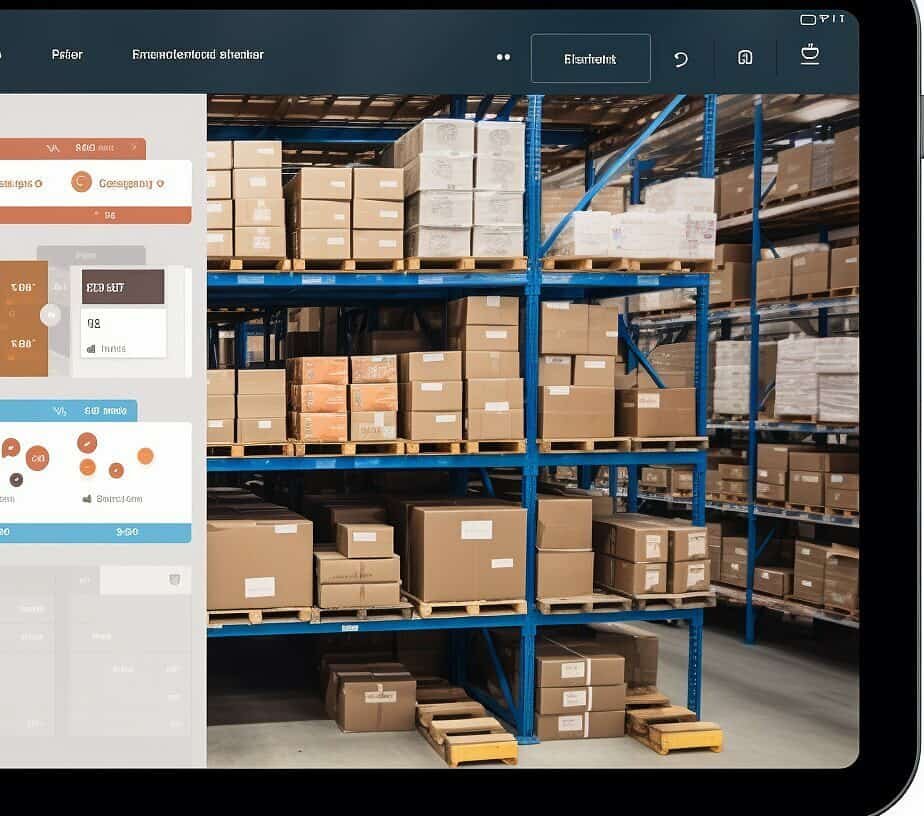advantages of using no code productivity appsal Productivity Apps, where one can boost efficiency and productivity without any technical knowledge. These apps offer non-programming users effective productivity solutions for managing their work and personal lives. The best part? Using these productivity apps without coding is incredibly easy. Say goodbye to the complexities of traditional productivity apps that require programming skills, and start using no code productivity tools today. In this article, we explore the world of no code personal productivity apps and how they can benefit you in your daily life.
What are No Code Personal Productivity Apps?
No code personal productivity apps are software solutions that don’t require coding knowledge or technical expertise to develop and use. These productivity tools are designed for non-programming users who want to boost their efficiency and streamline their tasks without having to learn complex coding languages.
No-code productivity apps are different from traditional productivity apps that require coding skills. While traditional apps are built using programming languages, no-code apps can be developed effortlessly using a drag-and-drop interface that allows users to create customized workflows without needing any programming knowledge.
How No Code Personal Productivity Apps Work
Unlike traditional productivity apps that require coding skills, no code personal productivity apps can be developed effortlessly without any programming knowledge. These apps utilize a drag-and-drop interface that allows users to create customized workflows easily. Let’s take a closer look at how these apps work.
Drag-and-Drop Interface
One of the key features of no code personal productivity apps is their drag-and-drop interface. This interface allows users to select and arrange different blocks of code visually, without writing any actual code. The blocks of code can represent different functionalities or tasks, such as sending emails or updating spreadsheets. Users can drag these blocks into a visual workflow and arrange them to create custom automations for their productivity needs.
Workflow Customization
No code personal productivity apps allow users to create custom workflows that suit their specific needs. Users can easily select the relevant blocks of code from a library, drag them into their workflow, and arrange them in the required sequence. The visual interface of these apps makes it easy for non-programmers to create sophisticated workflows without needing any coding expertise.
Moreover, no code personal productivity apps can be customized further by changing the settings of each block of code. For instance, users can specify the conditions under which a block should run, such as a certain time, date, or trigger event. This level of customization gives users greater control over their workflow and ensures maximum productivity.
In conclusion, no code personal productivity apps offer a user-friendly, flexible, and customizable way to automate workflows and improve productivity. Their drag-and-drop interface and customization options make them accessible to non-programmers and provide a seamless user experience.
Popular No Code Personal Productivity Apps
There are numerous no code personal productivity apps available in the market. Here are some of the most popular ones:
| App Name | Features | Pros | Cons |
|---|---|---|---|
| Notion | Task management, note-taking, project planning, team collaboration, database management | Flexible and customizable, intuitive interface, easy to use, supports multiple file formats and integrations | Can be overwhelming with too many features, mobile app not as feature-rich as desktop version |
| Airtable | Manage workflows, project management, CRM, team collaboration, database management | Flexible, customizable, intuitive, easy to use, supports multiple file formats and integrations | Pricing can get expensive for advanced features, not ideal for large datasets |
| Trello | Task management, project planning, team collaboration | User-friendly interface, easy to use, supports integrations, mobile app available | May not be suitable for complex project management, limited functionality |
Notion is a popular all-in-one productivity app that allows users to manage tasks, take notes, plan and track projects, collaborate with team members, and manage databases – all from a single platform. Its flexible and customizable interface makes it a favorite among creatives and freelancers.
Airtable is another popular app that provides users with the flexibility to create custom workflows, manage projects, and collaborate with team members. Its intuitive interface and support for multiple file formats and integrations make it a great choice for businesses of all sizes.
Trello is a simple yet effective task management app that uses a board and card system to help users track progress on different tasks and projects. It’s easy to use interface and mobile app make it a popular choice for freelancers and small businesses.
Overall, there are many no code personal productivity apps available to choose from, each with their own set of features and advantages. Users should evaluate their needs and choose the app that best matches their requirements.
Time Tracking and Management Apps
Effective time management is crucial for boosting productivity. No code personal productivity apps offer a range of tools to help users track and manage their time efficiently without requiring any coding knowledge.
Some popular time tracking and management apps include:
| App Name | Description | Key Features |
|---|---|---|
| RescueTime | A time-management app that tracks users’ computer usage to analyze and report on how they spend their working hours. | Automatic tracking of apps and websites usage, detailed weekly reports, goal setting and progress tracking, alerts for excessive usage. |
| Toggl | A time-tracking app that offers simple and intuitive interfaces to help users track billable hours, create reports, and manage projects. | One-click time tracking, project and client management, reporting, integrations with other productivity apps. |
These apps help users focus on the most important tasks, track their progress, and identify areas where they can improve their productivity.
Automating Repetitive Tasks with Productivity Apps
Have you ever found yourself performing the same task repeatedly throughout the day? Do you feel like you’re wasting valuable time on tasks that could easily be automated? With no code personal productivity apps, you can save time and reduce the risk of errors by automating repetitive tasks. These apps allow you to create workflows that can perform a variety of functions, such as sending emails, updating spreadsheets, and much more.
One popular app for automating tasks is Zapier. This app allows you to connect multiple apps and automate workflows between them. For example, you can set up a workflow that sends you an email whenever you receive a new message on Slack, or you can automatically save email attachments to Google Drive. Zapier also offers a visual builder that makes it easy to set up and customize workflows without needing any coding knowledge.
Another app that specializes in automating repetitive tasks is IFTTT (If This Then That). This app allows you to create custom rules that trigger different actions based on certain events. For example, you can set up a rule that automatically saves an email attachment to Dropbox whenever you receive an email from a specific sender. IFTTT integrates with a wide range of services, including Gmail, Google Drive, and Twitter, allowing you to automate a variety of tasks.
By automating repetitive tasks, you can save valuable time and reduce the risk of errors. No code personal productivity apps make it easy to set up custom workflows without needing any programming knowledge. With the right app, you can automate a wide range of tasks and boost your productivity effortlessly.
Managing and Collaborating on Projects
No code personal productivity apps can be game-changers for teams collaborating on a project. The right productivity app can help team members stay on track, communicate effectively, and meet project deadlines. Here are some productivity apps that can help manage and collaborate on projects:
| Productivity App | Description | Features |
|---|---|---|
| Trello | Trello is a project management tool that helps teams collaborate and keep track of tasks in a visual way. |
|
| Asana | Asana is a popular project management tool that streamlines team communication and task management. |
|
| Notion | Notion is an all-in-one workspace that can function as a project management tool for teams. |
|
These productivity apps make it easy for teams to manage and collaborate on projects from anywhere. By using these apps, team members can stay on top of deadlines, communicate effectively, and get work done efficiently.
Integrating No Code Personal Productivity Apps
No code productivity apps work seamlessly with other tech tools to help users enhance their productivity. Integrating various productivity apps offers a more comprehensive productivity stack, allowing users to streamline their work and increase efficiency.
One popular app that integrates well with other no-code productivity apps is Zapier. Zapier allows users to connect their favorite productivity apps with ease, creating automated workflows that save time and reduce errors. For instance, integrating a time-tracking app with a project management app via Zapier can automatically log time spent on tasks and assign them to the right project.
Another tool that integrates well with no-code productivity apps is Trello. Trello is an intuitive project management tool that provides users with visual boards and cards to organize their tasks. Integrating Trello with other apps like Google Calendar or Slack enhances its functionality and productivity. With Google Calendar integration, for instance, users can set due dates for tasks in Trello, and it will automatically appear in Google Calendar.
Moreover, no code personal productivity apps can also be integrated with virtual assistants like Alexa or Google Assistant. Users can use voice commands to create tasks, set reminders, and track time spent on projects, among others.
Integrating no code personal productivity apps with other tools offers several benefits, including optimized workflows, streamlined processes, and enhanced productivity. By automating repetitive tasks and reducing manual errors, users can focus on what matters and achieve their goals more efficiently.
Tips for Choosing the Right No Code Personal Productivity Apps
Choosing the right no code personal productivity app can be overwhelming. With so many options available, it’s important to evaluate your needs and goals before making a decision. Here are some tips to help:
- Identify your priorities: Determine what tasks you need the app to handle, and what features are essential for your productivity.
- Consider ease of use: Look for apps with an intuitive interface and easy-to-navigate features.
- Read reviews: Research what other users have to say about the app’s functionality and performance.
- Check for integration: Look for apps that can integrate with other productivity tools you use, making your workflow more seamless.
- Check for cross-platform compatibility: Ensure the app is available on all your devices (desktop, laptop, tablet, smartphone, etc.) and that it works well on each of them.
By keeping these tips in mind, you’ll be able to shortlist the no code personal productivity apps that are most suitable for your needs and goals.
Top No Code Personal Productivity Apps for Different Use Cases
No code personal productivity apps provide a range of solutions for users seeking to manage their tasks and time more effectively. Here are some of the top apps that can cater to different use cases:
Task Management
ClickUp: A comprehensive app that enables users to create customized workflows with drag-and-drop functionality. Users can set recurring tasks, add attachments, and even track time on specific tasks. ClickUp offers integrations with a host of other productivity apps as well.
Trello: A popular app that offers a visually-appealing interface with boards and cards that can be moved around to indicate task status. Users can add due dates, labels, and checklists to their tasks, and the app offers integrations with several other tools.
Time Tracking
RescueTime: A robust time tracking app that provides detailed reports on time spent on various applications and websites. Users can set goals and alerts to help them stay on track and focused. The app also offers tools for limiting distractions during work hours.
Timely: An app that focuses on automatic time tracking, allowing users to capture their work hours without manual entry. The app also offers project tracking and scheduling, and can be integrated with other productivity tools.
Project Management
Asana: A popular project management app that provides features for task assignment, deadlines, and progress tracking. The app also offers team collaboration tools, including messaging and file sharing.
Notion: An all-in-one workspace app that offers a range of features, including project management tools, note-taking, and document sharing. Notion’s flexibility allows users to create customized templates and workflows to match their specific use cases.
Note-Taking
Evernote: A widely-used note-taking app that offers rich text formatting, tagging, and note organization features. Users can also add attachments and audio recordings to their notes, and the app offers integrations with other productivity tools.
Notion: In addition to its project management capabilities, Notion also offers robust note-taking features. Users can create and organize notes in a variety of formats, including tables, lists, and kanban boards.
These are just some of the top no code personal productivity apps available in the market for different use cases. With numerous options to choose from, users can find the app that best matches their specific productivity needs.
FAQ
Here are some frequently asked questions about no code personal productivity apps:
What are some advantages of using no code productivity apps?
No code productivity apps can benefit non-technical users in several ways. They offer a simple, easy-to-use interface that allows users to create custom workflows without coding knowledge. Additionally, they can help automate repetitive tasks, saving time and reducing human error.
Do I need coding knowledge to develop a no code productivity app?
No, you don’t need any coding knowledge to develop a no code productivity app. The apps use a drag-and-drop interface that enables users to create custom workflows by selecting and arranging pre-built components.
How can I choose the right no code productivity app?
Choosing the right no code productivity app depends on your specific needs. Consider evaluating the features of different apps and matching them with your requirements. Look for apps that offer task management, time tracking, project management, and other features that align with your goals.
Can I integrate no code productivity apps with other tech tools?
Yes, many no code productivity apps can be integrated with other tech tools. For example, some apps can integrate with email clients, calendars, or communication platforms to provide a more comprehensive productivity stack.
What are some popular no code personal productivity apps?
Some popular no code personal productivity apps include Notion, Airtable, Trello, and ClickUp. Each app has its own set of features and benefits, so it’s important to evaluate which one suits your needs.
Are no code productivity apps suitable for businesses?
Yes, no code productivity apps can be suitable for businesses of all sizes. They can help teams collaborate more effectively, manage tasks and projects more efficiently, and automate repetitive processes.
Are no code productivity apps secure?
Most no code productivity apps are secure and follow industry standards for data protection. However, it’s important to evaluate the security features of each app before using it to store or share sensitive data.
Do no code productivity apps require internet access?
Most no code productivity apps require an internet connection to function properly. However, some apps may offer offline access to certain features or data.




0 Comments